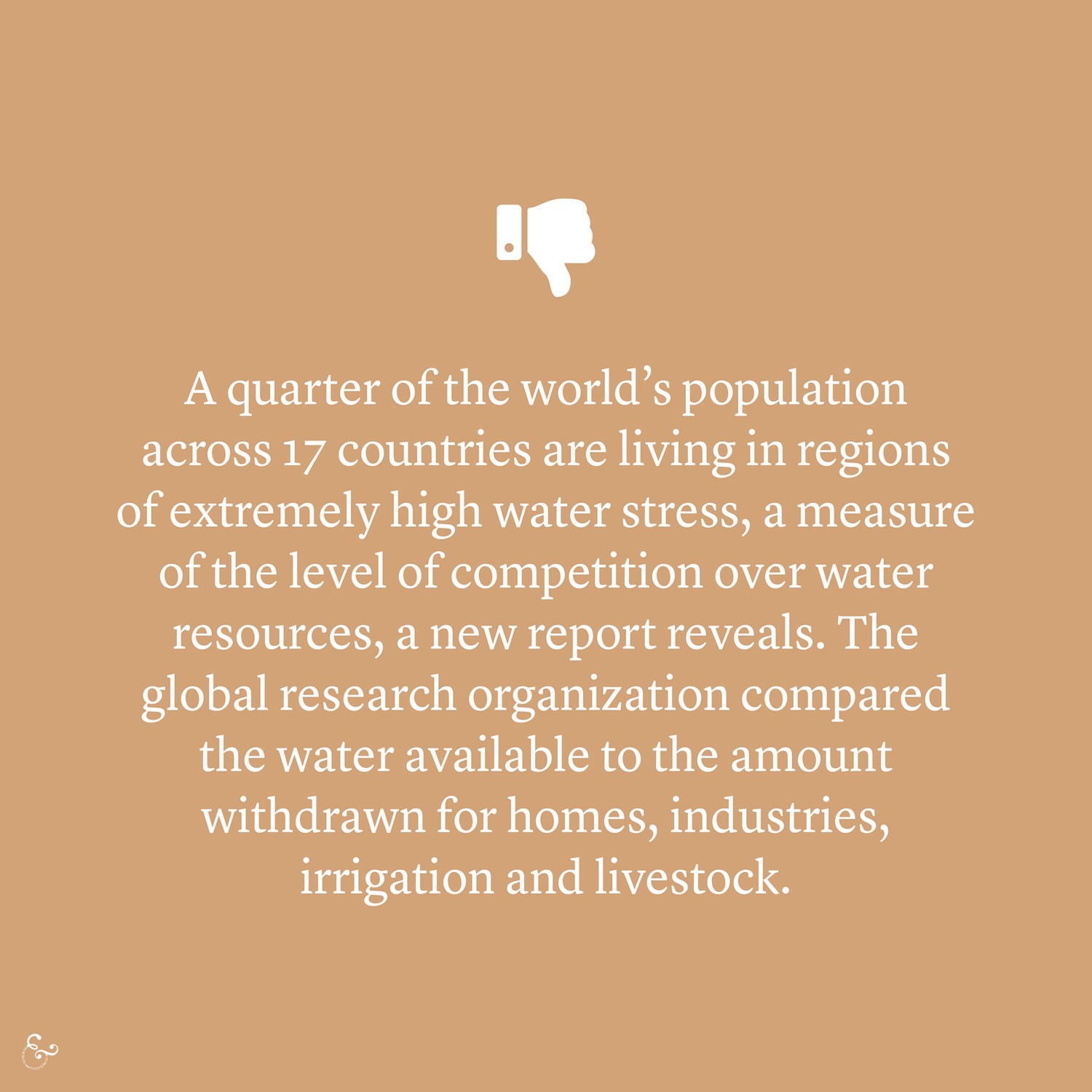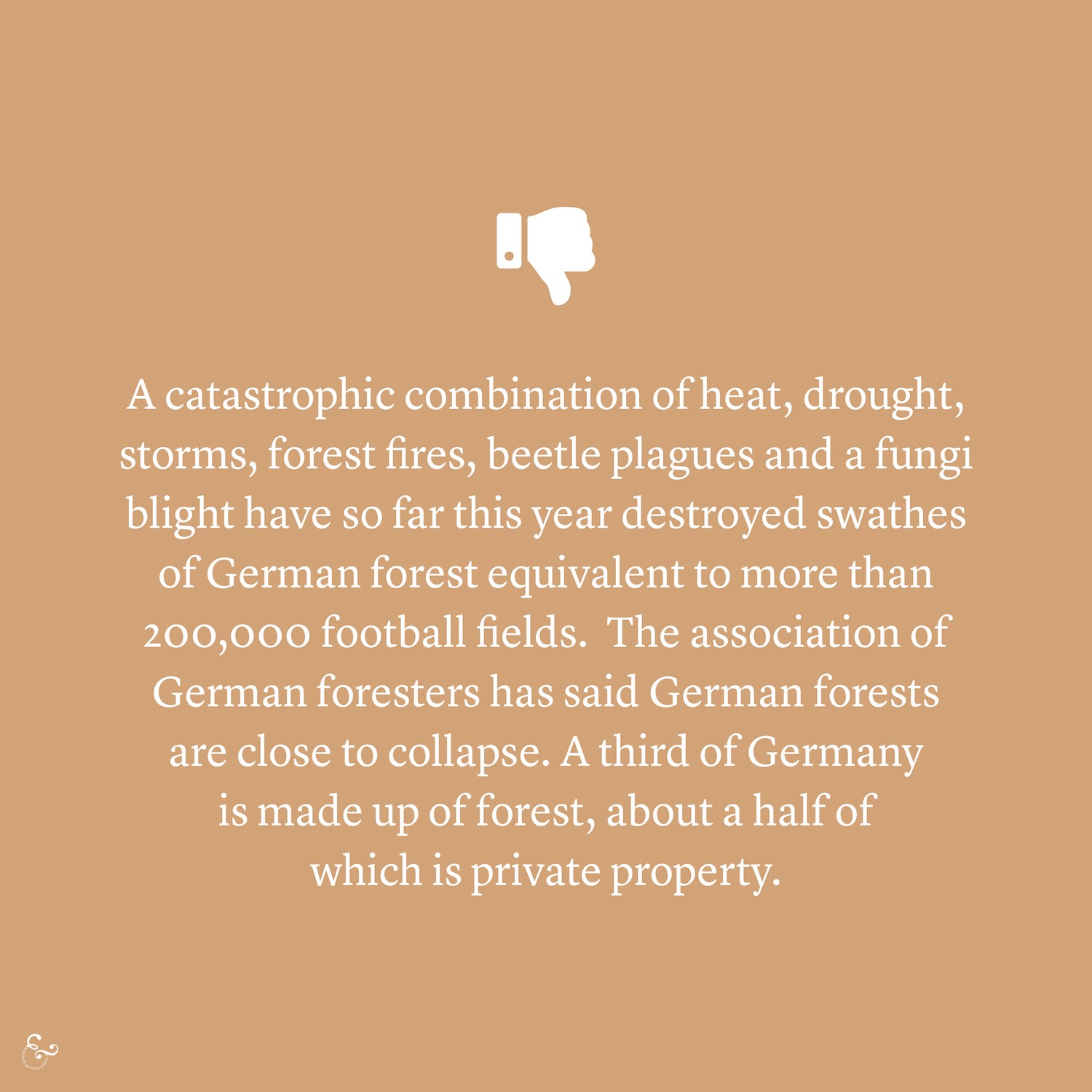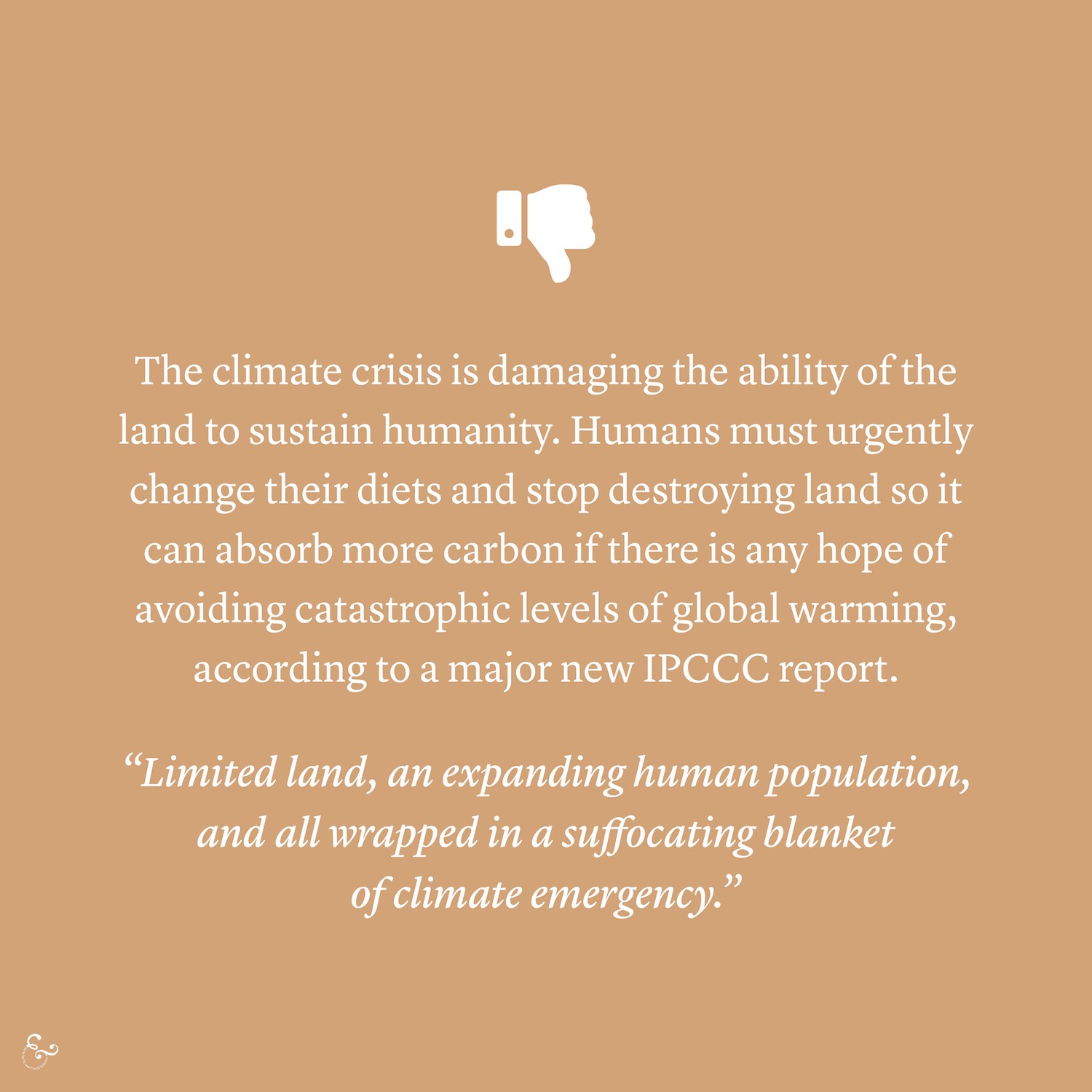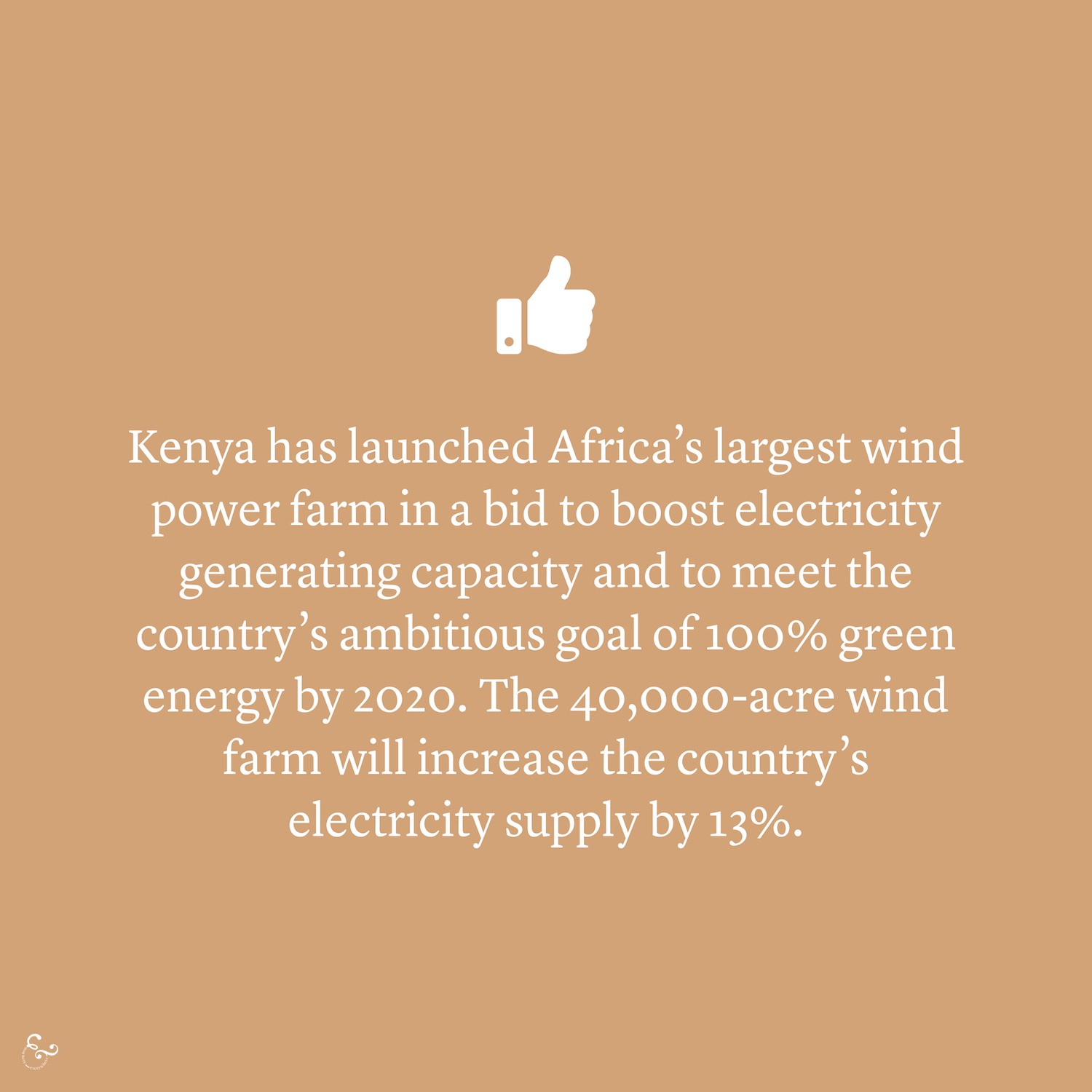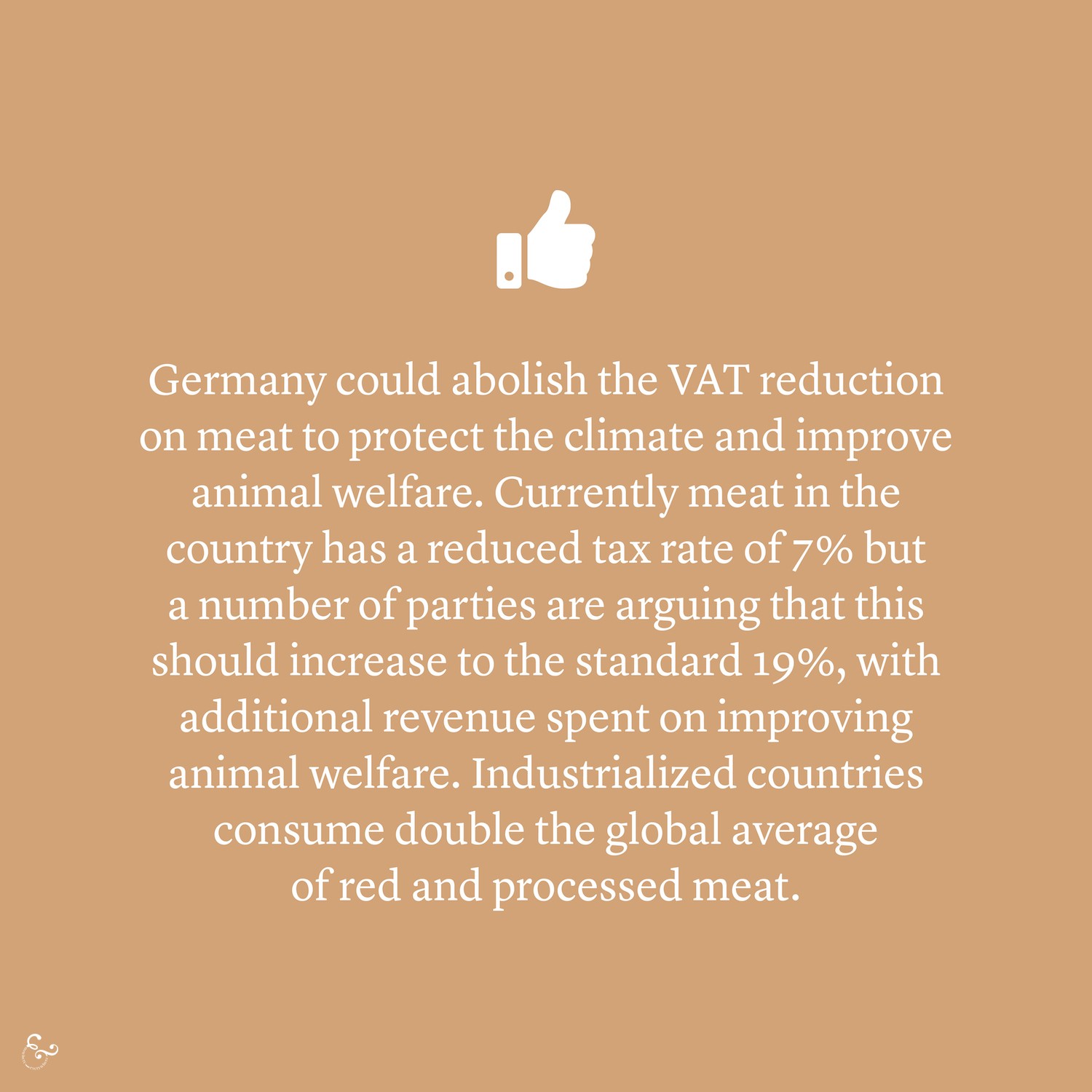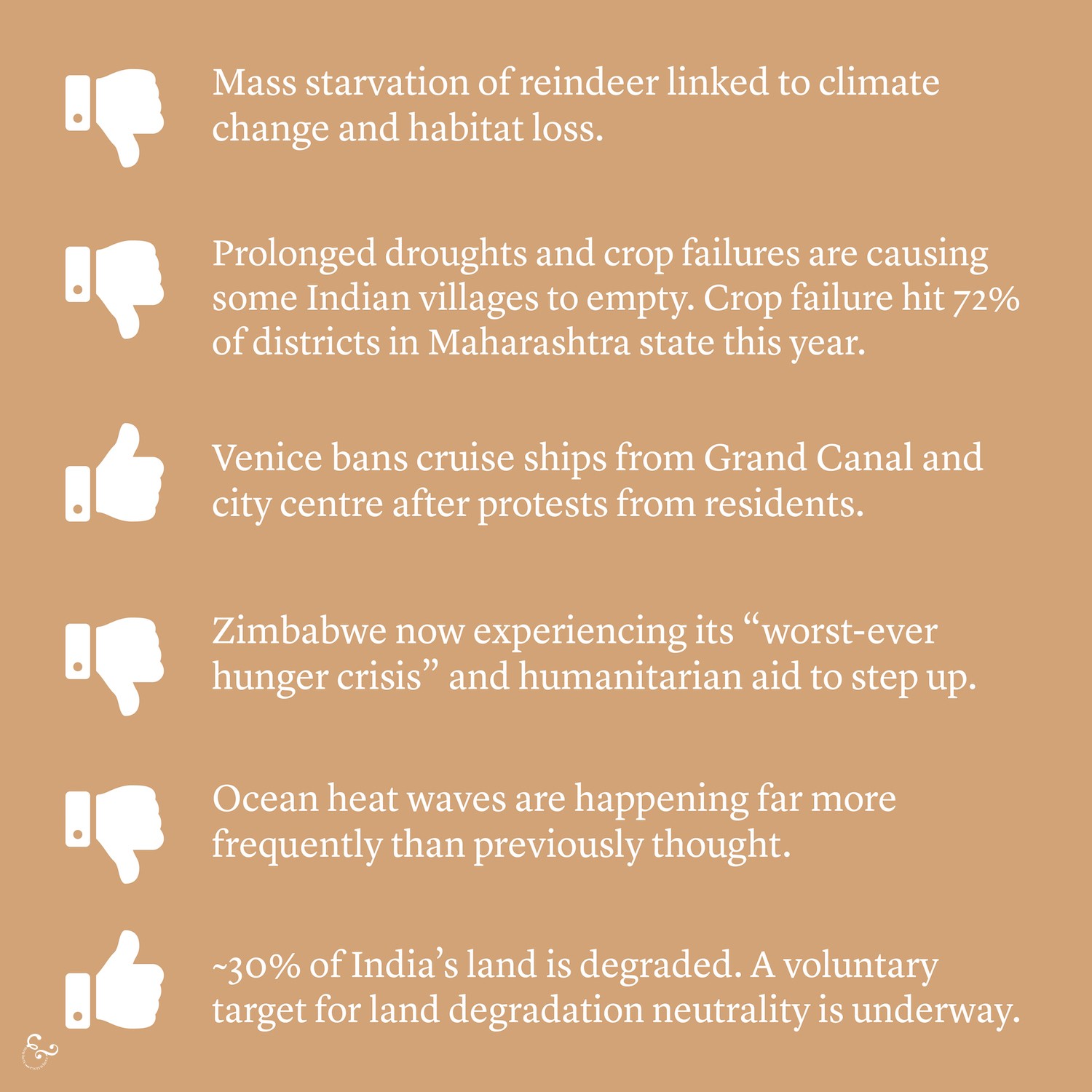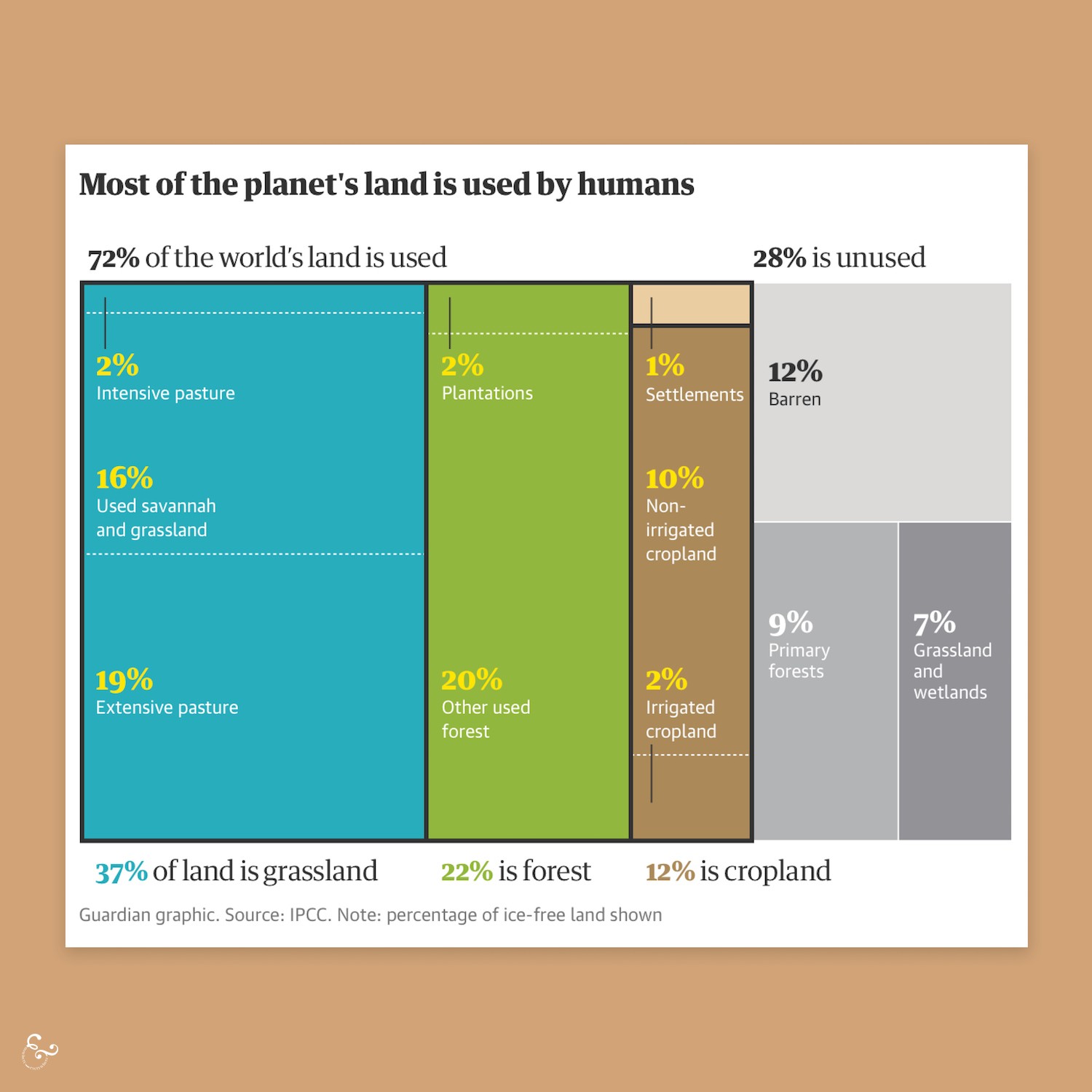World / Climate Change
1/ The climate crisis is damaging the ability of the land to sustain humanity, with cascading risks becoming increasingly severe as global temperatures rise. Land clearing and farming contribute a third of the world’s greenhouse gases. Humans must urgently change their diets and stop destroying land so it can absorb more carbon if there is any hope of avoiding catastrophic levels of global warming, according to a major new IPCCC report. Researchers believe any genuine plan to combat climate change must tackle the state of the land and production of food. This means putting a stop to chopping down rainforest, degrading soils, killing wildlife and draining peatlands. “Limited land, an expanding human population, and all wrapped in a suffocating blanket of climate emergency.” (BBC / Independent / Vox / Independent 2 / IPCC / The Guardian / The Conversation / NYT)
World / Climate Change
2/ A quarter of the world’s population across 17 countries are living in regions of extremely high water stress, a measure of the level of competition over water resources, a new report reveals. The global research organisation compared the water available to the amount withdrawn for homes, industries, irrigation and livestock. Around the world, stress on water supplies can exacerbate conflict and migration, threaten food supplies and pose risks for water-dependent industries, including mining and manufacturing. (The Guardian)
World / Deforestation
3/ Forestry companies that manage huge areas of rainforest in the tropics have failed to commit themselves to policies of “zero deforestation,” according to an analysis of their environmental policies by the Zoological Society of London (ZSL). The companies investigated by ZSL have a combined landbank of nearly 47 million hectares (116 million acres), an area 15 times the size of Belgium or a little greater than California. Only six out of the 97 companies were assessing the predicted impacts of climate change on the forestry sector. (Mongabay)
World / Climate Change
4/ Ocean heat waves, which can push out fish, plankton and other aquatic life, are happening far more frequently than previously thought, according to a new study in the Proceedings of the National Academy of Sciences. The results are in line with what scientists continue to warn: oceans are the Earth’s largest heat collector. According to the NOAA, more than 90 percent of Earth’s warming over the past 50 years has happened in the ocean. (PNAS / EHN)
Africa / Climate Change
5/ Climate change will hit many African countries more severely than previously thought, according to a new report. Researchers warn that rapid population growth means more and more people will be affected by extreme weather events across the continent in the coming years. Scientists say people in Africa will likely be among the hardest hit by climate change over the coming decades – with less capacity to deal with the impact.
Germany / Climate Change
6/ A catastrophic combination of heat, drought, storms, forest fires, beetle plagues and a fungi blight have so far this year destroyed swathes of German forest equivalent to more than 200,000 football fields. Forests are one of the most efficient ways to reduce carbon dioxide emissions, and in Germany alone they are able to absorb 62 million tonnes of CO2 – about 7% of the country’s emissions – every year. In last year’s dry summer and this year’s, the forests have been hit by a shortfall of 200 litres of rainwater per square metre, according to SDW, which Germany’s meteorological service says is the driest it has been for 50 years. The association of German foresters (BDF) has said German forests are close to collapse. A third of Germany is made up of forest, or 11.4m hectares (28 macres) – about a half of which is private property. (The Guardian)
The good news…
India / Environment
7/ Nearly 30 percent of India’s land is degraded and a voluntary target setting for land degradation neutrality is underway, an official from the environment ministry has said. An analysis by TERI suggests an economic loss of 2.5 per cent of GDP due to land degradation in India. (The Week)
Germany / Animals
8/ Germany could abolish the VAT reduction on meat to protect the climate and improve animal welfare. Currently meat in the country has a reduced tax rate of seven per cent but the Social Democrat party and the Greens are arguing that this should increase to the standard 19 percent, with additional revenue spent on improving animal welfare. Meat is taxed at 7 percent while oat milk is taxed at 19 percent. Researchers from the University of Oxford estimate that by 2020 there will be 2.4 million deaths attributable to red and processed meat consumption globally. This would have an associated healthcare cost of $285bn. Developed countries consume double the global average of red and processed meat. Earlier this year researchers from City, University of London said developed countries need to eat 80 percent less meat to safeguard the Earth from environmental disaster. (Independent)
Kenya / Climate Change
9/ Kenya has launched Africa’s largest wind power farm in a bid to boost electricity generating capacity and to meet the country’s ambitious goal of 100% green energy by 2020. The 40,000-acre wind farm known as the Lake Turkana Wind Power (LTWP) will generate around 310 megawatts of power to the national grid and will increase the country’s electricity supply by 13%. The cost of around $700m makes the Lake Turkana plant the largest private investment in Kenya’s history. Kenya has a target of 100% green energy by 2020. (CNN / ESI / The Africa Report)
Other notables…
- Climate change is now having a disproportionate impact on the food systems of the countries that have done least to produce the carbon emissions that are driving up temperatures. The Christian Aid study says that the top 10 most food insecure countries all generate less than half a tonne of CO2 per person, and in total just 0.08% of global emissions. (BBC)
- The state of Tasmania in Australia may open up to significant logging again. The Liberals [conservatives] came to power in Tasmania in 2014 on a platform of tearing up the so-called forest peace deal and creating a renaissance within the forestry industry. One of their first tasks was to re-classify 400,000 hectares of forest known as “future reserve land” and label it “Future Potential Production Forest”. (ABC)
- Mass starvation of reindeer linked to climate change and habitat loss. (The Conversation)
- The rate of modern global sea level rise began accelerating in the 1960s and not the 1990s as many previously thought, according to new research. They concluded that the jump in the rate of sea level rise in the 1960s was mostly caused by thermal mass expansion — the expanding of the oceans as they warm up. Thermal expansion continued to drive sea level rise through to the 1990s, when glacial melting overtook thermal expansion as the dominant forcing. (ABC)
- The hot weather seen in the Netherlands and France was made up to “100 times more likely” by climate change, new study finds. (Carbon Brief)
- Prolonged droughts and crop failures are causing some Indian villages to empty. Drought and crop failure hit 72 percent of districts in the state of Maharashtra this year. (DW)
- Climate-driven extreme weather is threatening old bridges with collapse (The Conversation)
- In the Philippines, the Rufous-headed Hornbill has been driven to the brink of extinction by hunting and deforestation. But thanks to a new project, it is celebrated among local people, and has kicked off a movement to restore the area’s forests. (Bird Life)
- The BioRescue Project received funding of $4.4 million from the German Federal Ministry of Education and Research to create a population of Northern White Rhinos. The embryo obtained (from the sperm of the last male northern white rhino that died and the last two remaining females) will then be transferred into the uterus of a southern white rhinoceros via embryo transfer and carried to term by the surrogate mother. (UPI)
- With Zimbabwe now experiencing its “worst-ever hunger crisis”, the UN food relief agency has revised its humanitarian appeal to step up food assistance to people most affected by drought, flooding, and economic stagnation. More than one-third of the rural population, or some 3.6 million people, will be food insecure by October, and by January the figure is expected to increase to 5.5 million. This accounts for 60 per cent of the rural population. (UN)
- Most coal-fired power plants in India have not installed pollution control technology, although the Central Government revised emissions standards almost four years ago. (IISD)
- A team of researchers has discovered that sharks are much rarer in habitats nearer large human populations and fish markets. The team also found that the average body size of sharks and other marine predators fell dramatically in these areas, where sharks are caught and killed intensively for their meat and fins. Interestingly, researchers also found that sea surface temperature had a strong influence on predators’ average body size, with a marked decrease at more than 28°C. (PLOS Biology / Science Daily)
- Poor water management of the Murray-Darling Basin combined with a lack of water is to blame for an alarming decrease in platypus numbers in that area, researchers say. The researchers also concluded the animal has never recovered after being hunted in numbers between the 18th and 19th centuries. (ABC)
- New data shows dolphins, turtles and stingrays made up 94 percent of the marine life caught by shark nets on some of New South Wales’s most popular beaches. (ABC)
- Almost 67,000 new cases of asthma in children across 18 European countries could be prevented every year if levels of tiny particulates polluting the air are cut to recommended levels, research suggests. (The Guardian)
- Climate change could cause levels of toxic mercury in seafood such as cod and tuna to increase, scientists have warned. Around four-fifths of the mercury put into the atmosphere from natural and human causes, such as burning coal, ends up in the ocean. (Independent)
- Charred forests not growing back as expected in Pacific Northwest, researchers say. (CBC)
- Venice bans cruise ships from Grand Canal and city centre after protests from residents. (ABC)

